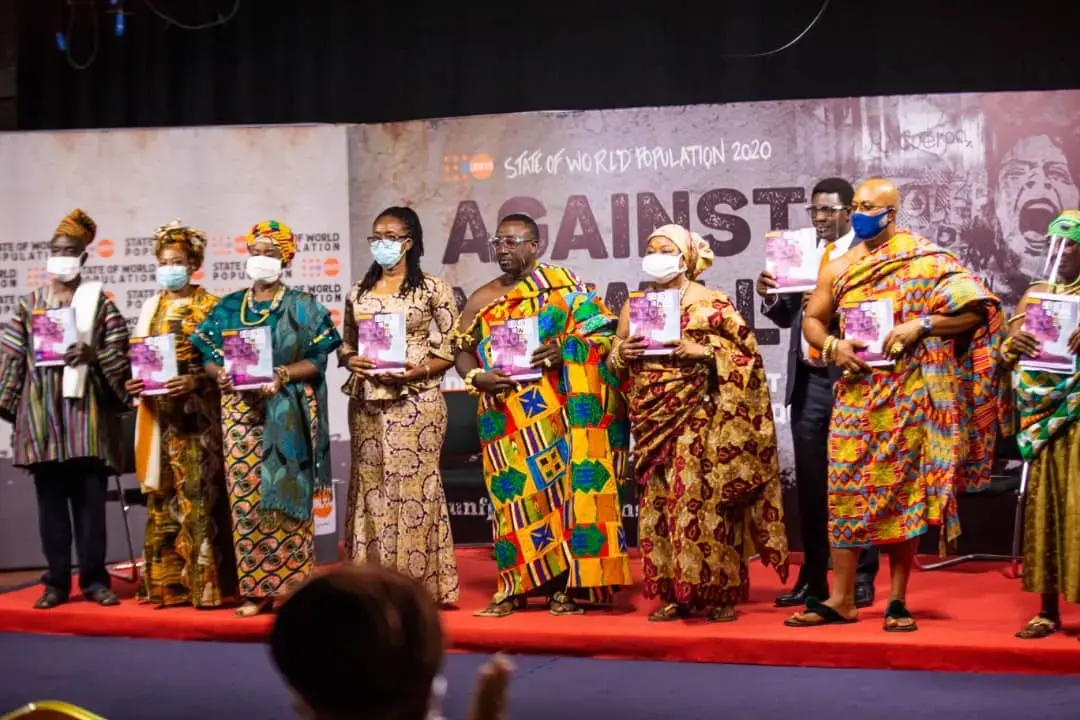Nurturing a child starts from the home since that is the child’s first place of shelter, love and protection. The home is where laying the ground work for an emotionally healthy adulthood begins hence sex education which is an essential aspect of everyday life must also begin at home. These were the remarks of the Deputy Minister of Gender, Children and Social Protection Ms. Gifty Twum – Ampofo made on the day set aside for the celebration of the girl child when she interacted with sixty girls and ten boys from the Ashanti region on women’s voices a live programme on Ghana Television. The Deputy Minister advised girls to abstain from sex and concentrate on their education, as a strategy she termed sexual fasting until marriage. She encouraged girls to apply their religious principles which she knows both Muslims and Christians uphold when it comes to fasting.
Universally, women and girls face a lot of discrimination in almost every aspect of their lives. There is gender inequality among girls to enjoy some social rights including right to education, access to health, economic entrepreneurship as well as skills development and this is more pronounced when girls approach puberty. Globally, millions of girls have no access to education; girls ages 5 to 14 spend more time doing household chores than boys of the same age and girls are getting married before age 18 as compared to boys of same age.
The United Nations in recognition of these challenges declared October 11 as the International Day of the Girl Child to draw attention to issues of inequality and matters that hinder the progress of girls as against boys so as to bridge the gap. The Youth Alliance for Development (YAD), a Civil Society Organisation initiated an anti-teenage pregnancy campaign to address the issues of adolescent pregnancy in Ghana as part of the 2017 commemoration. YAD led by Mr. Mustapha Badini brought Senior High students from Obuasi, New Edubiase, Fomena and its environs to the studios of Ghana Broadcasting Corporation Television (GTV) to have a discussion on the topic of adolescent pregnancy with the aim of making the campaign a national issue since GTV has a national coverage.
Ms. Erika Goldson the UNFPA Deputy Representative in Ghana, who was the guest for the event said girls today enjoy better life prospects than previous generations in many ways. Globally, prosperity and nutrition are improving, child marriage and teenage pregnancy are declining, and female educational attainment and participation in the labour force are on the rise. However, these advances are far from universal and are increasingly tenuous in many parts of the world including Ghana. She said the poorest, particularly girls are often left behind, with their rights undermined.
Ms. Goldson noted that Ghana has a youthful population with the adolescents (10-19 years) representing a significant proportion that requires critical attention. The critical attention is especially with respect to their sexual and reproductive health behaviour that is accompanied by diverse challenges of early sex, early pregnancy and childbearing all of which have led to school drop-outs particularly for females, low education and curtailment of career and skills development. When a girl reaches adolescence, the life changing events pull her in different directions. Where she ends up, depends on the support she receives and the personal will-power she can muster to shape her own future. She therefore urged everyone to get involved today and every day, to support the power of girls at all times because when a girl’s potential goes unrealized, we all lose! Ms. Goldson concluded.





